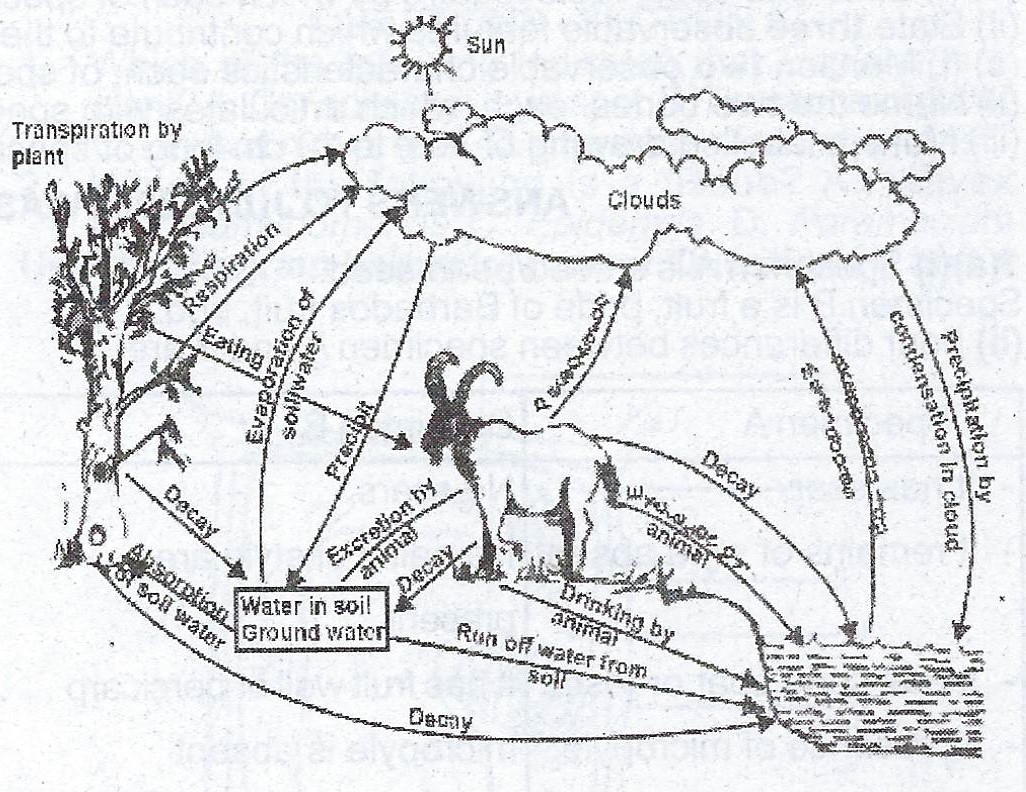The website has the complete lesson note for all the subjects in secondary school but this piece showcases the SS2 Biology Lesson Note on Water Cycle and Nitrogen Cycle. You can use the website search button to filter out the subject of interest to you.
CLICK HERE to download the complete Document: DOWNLOAD HERE
TOPIC: NUTRIENT CYCLING IN NATURE
CLASS: SS2
CONTENT:
- The water cycle
- The nitrogen cycle
- Decomposition in Nature
SUB-TOPIC 1: THE WATER CYCLE
Water circulates mainly within the abiotic environment. Only a small proportion recycles through living organisms. Plants take up water from the soil in large amounts. They use a little part of it in photosynthesis and other metabolic reactions and lose most of the water to the atmosphere by transpiration. Animals take in water through their food and drink, and lose most of it through respiration, urination and defecation. Water is also released into the atmosphere by decomposition and combustion.
The water cycle is maintained mainly by the evaporation and condensation of water in the abiotic environment. The endless cycling of water on earth as rain, back to the atmosphere through evaporation, then back to the earth again as rain maintains the various aquatic environments and the supply of water which is necessary for life on land. The water cycle carries many chemical nutrients through the ecosystem and it is an important factor in modifying environmental temperature.
Summarily, processes involved in the completion of the water cycle include
- Evaporation
- Transpiration
- Respiration
- Condensation
- Precipitation
- Infiltration

WATER CYCLE
The Importance of Water to Living Organisms
- Water constitutes about 90% of the protoplasm.
- It is important in the circulation of blood, food, hormones and enzymes in the body.
- It is necessary for the digestion of food.
- It facilitates the absorption of digested food.
- It is necessary for the excretion of wastes materials like urea.
- Metabolic chemical reactions for building up complex compounds in living cells take place in the presence of water.
- Mineral salts are absorbed from the soil in solution.
- Water is required for photosynthesis to take place.
- Mineral salts and organic substances are carried to and from the leaves in solution.
- Water provides herbaceous land plants and aquatic plants with mechanical support.
EVALUATION
- Describe the water cycle.
- Of what importance is the water cycle to living organisms?
- Make a simple diagram of the water cycle.
SUB-TOPIC 2: THE NITROGEN CYCLE
Click on the Downloadable Button to get the FULL NOTE




